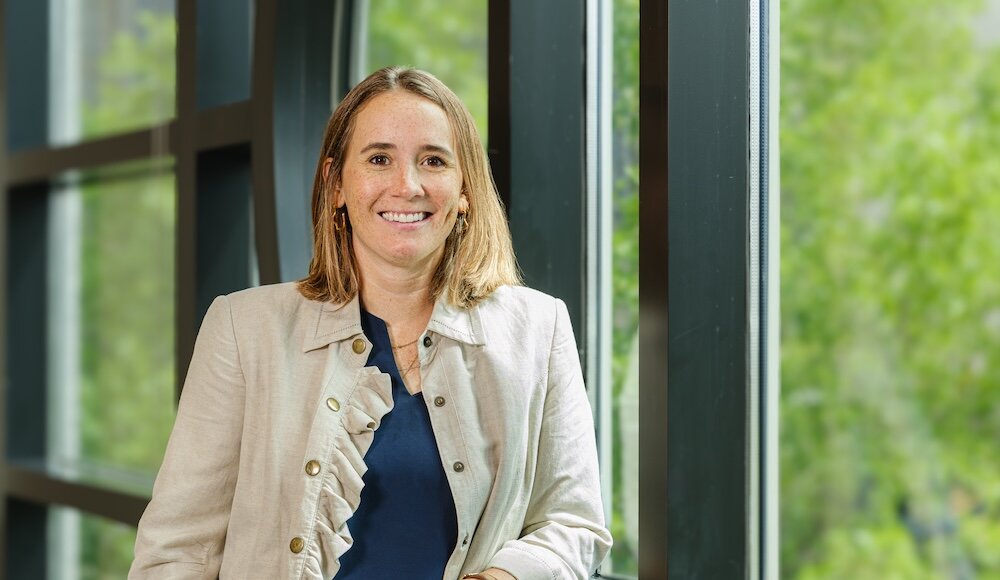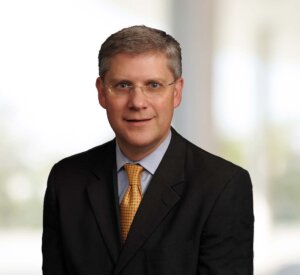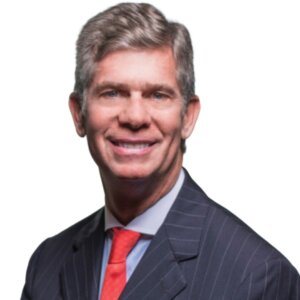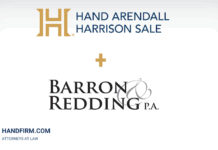
Some of Alabama’s largest law firms provide legal counsel to companies doing business around the world on land and on the seas, from Chile and the United Kingdom to Turkey and Singapore.
One of those law firms is Bradley Arant Boult Cummings LLP, a national firm based in Birmingham with more than 700 attorneys in 13 offices in Alabama and across the Southeast, Texas and the District of Columbia. Bradley serves clients in several industries, including banking, construction, energy, health care, manufacturing and technology.
“We have clients all over the country that are increasingly getting involved in overseas projects, international projects or projects that end up in disputes with multinational counterparties or adversaries. So, the international aspect is growing, and I think that’s a trend that’s here to stay,” says Carly Miller, a partner at Bradley.
In May, Bradley launched an International Arbitration team that would represent clients globally in international commercial arbitrations and investment treaty arbitrations.
Investment treaty arbitrations involve legal disputes between foreign investors and host states.
The new team consists of more than 20 attorneys in the firm who are experts in the complexities of cross-border investments and international arbitration law.
Miller, one of Bradley’s arbitration team co-leaders, says the firm created the team so lawyers in the firm with subject-matter expertise in construction, energy, government contracts, banking and financial services could team up with attorneys who have experience in international arbitration.
Miller says she recently took part in a two-week arbitration hearing in Chile involving a client in the renewable energy sector that managed a hydroelectric power project there. The company fell into a dispute with a tunneling contractor consisting of two construction companies, one in Italy and the other based in Germany.
She says the ability to speak a foreign language is helpful in such cases.
“I speak Spanish. Jennifer Ersin, who is another co-leader of the team, is fluent in Turkish. We certainly have many members working who speak another language, but it’s not a requirement,” she says.
“A lot of these international disputes are conducted in the English language and/or take place in English. That’s because it’s common practice in international arbitration to do that,” says Miller. “That was a case in Chile. It was governed by New York law and conducted in the English language.”
Miller says that since launching the international arbitration practice, the firm has attracted new clients seeking counsel on global legal matters.
“I hope this makes us more of a household name nationally and internationally for handling international disputes and arbitrations.”
Meanwhile, down in Mobile, attorney Jaime Betbeze is practicing law in several areas, including admiralty and maritime law at Maynard Nexsen, a firm headquartered in Birmingham with offices across Alabama and the United States.

Admiralty and maritime involves legal matters on the sea such as shipping, navigation, collisions, cargo disputes and personal injuries to crewmen, to name a few.
“We represent ship owners primarily through P&I clubs. Those are protection and indemnity clubs, associations that are large mutual insurance companies that insure oceangoing vessels,” Betbeze says.
Thirteen P&I clubs exist worldwide, and Maynard Nexsen is a local correspondent for six of them, says Betbeze, and his office is called upon to represent ship owner members whenever an issue comes up at the Port of Mobile, such as personal injuries involving crewmen onboard a vessel or longshoremen.
Most of the P&I clubs are based in London, though some exist in Hong Kong, Greece and other locales with large ship holding interests, Betbeze says.
“We get involved in cargo disputes, particularly if there is damage to cargo either during transit or during loading or unloading operations. We would be called upon to investigate and defend those claims,” Betbeze says.
“We also deal with contractual issues that arise out of the construction or repair of vessels,” he says.
Betbeze says his career in maritime law has taken him to far-flung countries around the globe such as Singapore to conduct depositions for corporate clients.
But he says a growing number of cases are settled through arbitration instead of going to trial. “That’s really been the case for a while now that a lot of the bills of lading or the charter parties will specify that disputes that arise will be handled either in London arbitration or some in New York arbitration,” he says.
He says cargo claims also may have an arbitration provision for London or New York, and he is often called upon in Mobile to conduct the onsite investigation and documentation of the claim.
“The interconnectivity that we have globally and the decisions that are made impact people’s lives on a day-to-day basis, whether it’s the food that’s on their table or the fuel that fuels their vehicles. We do have significant dependence, and it’s an interconnected dependence that we all have on each other, and the law is significant in protecting individual rights and contractual rights,” Betbeze says.

Fellow attorney David Lucas is a partner at Womble Bond Dickinson, a transatlantic firm that got its start in 2017 through a merger between Bond Dickinson LLP in the United Kingdom and Womble Carlyle Sandridge & Rice LLP in the United States.
Today, the firm maintains close to 40 offices worldwide, including 29 in the United States. Lucas works out of the firm’s Huntsville office.
Over the years, Lucas has litigated intellectual property rights in the United Kingdom and Europe as well as in the United States and advised companies on strategic plans for intellectual property.
But he also advises clients, from startups looking to jump into international markets, to large aerospace, space and defense contractors seeking to sell their technologies, he says.
“Because of our experience, we can tell them what to expect and when that might be the best economic decision,” he says.
“You’ve got to have a certain level of revenue and certain levels of opportunities before it’s economically justified to make that jump into an international market. So, we can help them before they make that jump, spend a lot of money and maybe lose money because they were premature getting there,” Lucas says.
For example, Lucas says he regularly advises clients on whether they need a license to sell a product overseas.
“If it’s a commodity or if it’s a general widget, there aren’t restrictions on that. But if it’s a piece of critical technology or a defense system or aerospace component, then it may require a license by the U.S. government to sell overseas,” he says.
“If you’re exporting, you might get penalized or even a criminal offense if it’s the wrong technology sold in the wrong country, or you might think you’re going to make a 20% profit, only find out that with a 40% tariff, there’s not going to be any profit,” he says.
“Can you sell a product direct from the United States into a country, or do you have to have some presence there? And that could be in the form of a branch or an actual local company, a corporation or a partnership or a limited company,” he says.
“We try to help people on the front end, plan for it, budget for it, and then advise them as they go along and will be there to help them should something go wrong.”
Gail Allyn Short and Art Meripol are Birmingham-based freelance contributors to Business Alabama.
This article appears in the August 2025 issue of Business Alabama.



